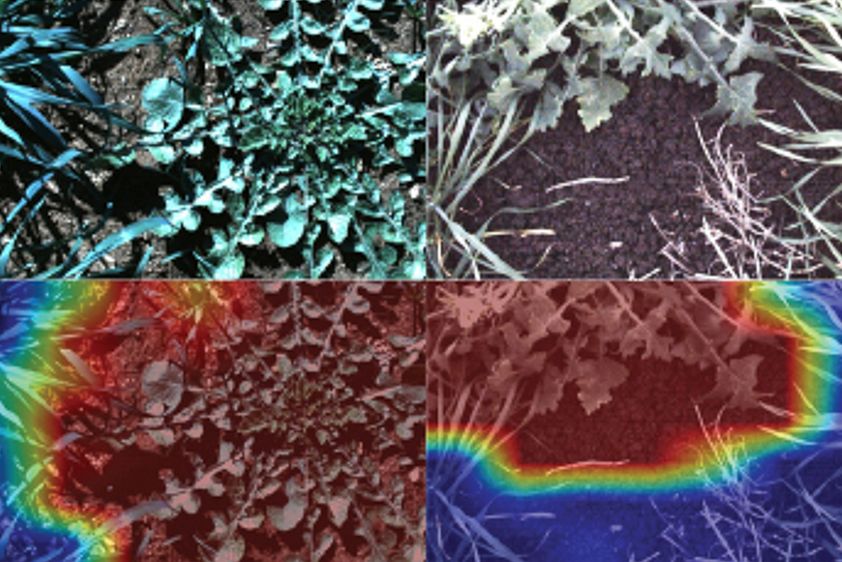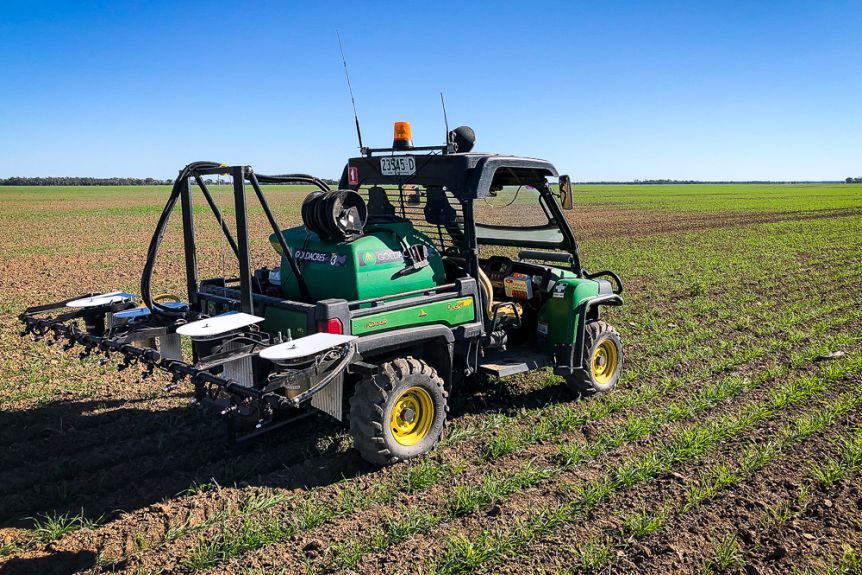Artificial intelligence that targets weeds may be a game changer for farmers in catchments feeding into the Great Barrier Reef.
Key points:
A new robotic sprayer is designed to use less herbicides by using a targeted spraying method, rather than wider distribution — meaning less time needed for spraying, at lower cost, and a smaller environmental impact on the reef.
James Cook University College of Science and Engineering senior lecturer, Mostafa Rahimi Azghadi, said by spraying a precise amount of herbicide, his project was hoping to reduce the weedkiller’s usage by more than 80 per cent.
A grant of $400,000 from the Great Barrier Reef Foundation and the Australian Government’s Reef Trust funded the two-year project, which is also testing the run-off water quality at test sites.
“Most herbicides are carried in river run-off and have been detected in GBR ecosystems at concentrations high enough to affect organisms,” Dr Azghadi said.
He said the technology is simple to teach — the farmer only had to take about 10 images of the target weed to train the prototype software to recognise the weed.
“We use the images that are labelled by humans and the software to train deep-learning and machine-learning algorithms,” Dr Azghadi said.

Dr Azghadi said the system had already been proven in wheat crops and pasture, and over two years would be redesigned and trained to work with and around sugar cane.
“It is using AI and deep learning to see the weed and detect if it is the weed of interest and spray it right away,” he said.
“These are the algorithms Facebook uses to detect human faces.”
Dr Azgjadi said the robot then operated on the back of a vehicle where cameras would constantly feed images into the neural network, and the sprayer would activate when a weed was detected.
He said the researchers would test the water running off the cane fields to see what reduction the new technology delivered over the project’s two-year timeline.
“That would incentivise this technology, because famers will see they are using less herbicide, spraying faster and there is going to be a healthier reef for everyone,” he said.
“It’s a win-win.”




‘Every little bit helps’
Herbicide run-off from cane farms into river catchments connected to the reef have been linked to sea grass die offs and declining water quality.
Katrina Dent, chief executive of Reef Catchments, said the technology could become another piece of ammunition in farmers’ fight to protect the reef.
“If it’s time-saving and creates efficiencies for growers, it’s a great outcome.”
She said it would be good once the technology moved past trails and into the agricultural sector.
“If it can be rolled out across the board, that’s always good,” Ms Dent said.
“And with these things, over time the price can come down and that is what growers are after.